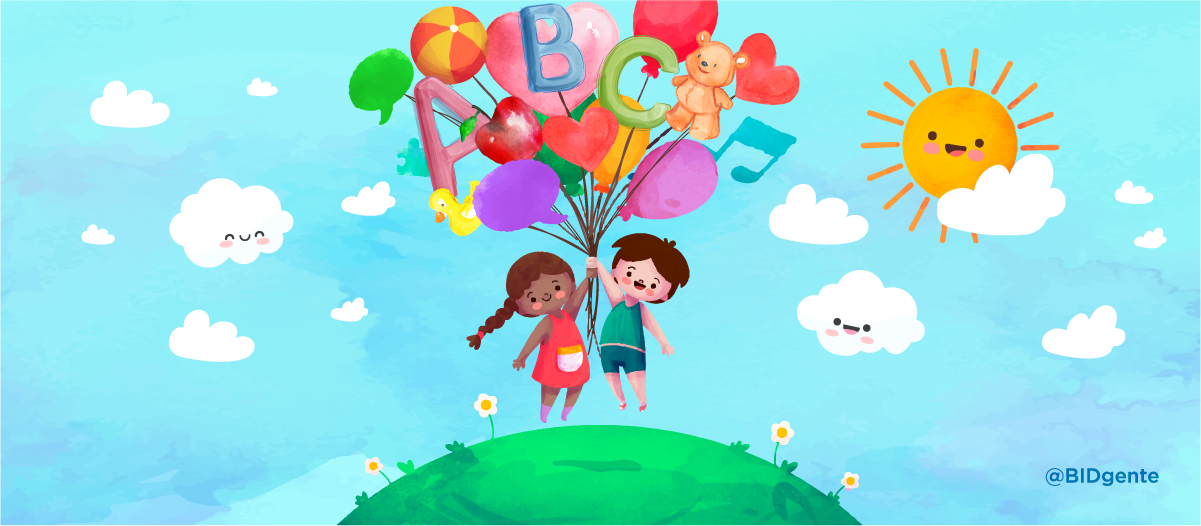To thrive is to flourish, it is to bloom. For a child it means that they are able to meet their potential, to be happy, healthy, joyful, curious and strong.
That every child grows up thriving is the goal of early childhood development. The newly published 2019 edition of Early Childhood Matters presents 32 articles which look at advances in early childhood development taking place around the world – from Brazil and Peru to Chad and the Kyrgyz Republic.
For Children, What does it Mean to Thrive?
The picture of a child thriving may be different across the world, depending on conditions and cultures. But children who thrive have one thing in common: an overall sense of well-being that comes from good health, nutrition, safety and security, responsive caregiving, and opportunities to learn.
These are the elements of nurturing care. They require strong families, supported by strong communities and quality services that reflect an understanding of how health, learning and behaviour are all related.
As in previous years, articles in Early Childhood Matters come in four sections.
-
Leadership.
A growing number of new champions are standing up for the importance of the early years for long-term development and well-being. Our authors here are important leaders from the United Nations, a foundation and public officials from around the world.
Together their articles demonstrate the growing support for early childhood, raising themes such as nutrition, urban planning, and clean air. On this last point, for instance, the current President of the United Nations General Assembly has voiced concern for the negative impact of poor air quality on children’s physical and psychological development.
-
Scaling.
A critical question in early childhood development is how to deliver services at scale without losing quality. Articles in this section provide insight into various strategies and themes such as inter-sectoral collaboration, financing, new measurement tools, use of mass media, and supporting the workforce. This is especially relevant in Latin America and the Caribbean, where countries struggle to recruit and properly train and support early childhood workers.
-
Innovations.
This section explores a wide range of new ideas, including how mobile apps are improving services, how early childhood services are being integrated into programmes to support refugees, and what behavioural science can tell us about work to support parents.Innovation in this field doesn’t have to be overly complicated or costly. It can imply changing mindsets and involving the community in rethinking public spaces to be more family-friendly, as happened in a favela in Brazil.
Of course, the line between innovations and scaling is not always clear. Many innovative ideas in early childhood start small, prove themselves, and are then scaled up – but increasingly we see innovations emerging as they scale, and scaling efforts innovating as they grow.
-
Global Impressions.
We review some important initiatives that have emerged in the early childhood field since our last edition, a year ago. These brief articles address diverse topics including cash transfers, inclusive education and urban transport.
Pulling Together to Help Children Thrive
I hope you will peruse the articles in the new edition of Early Childhood Matters and find some that inspire you. And, looking across all the articles, I hope you will sense the vitality in the field of early childhood development.
You will see initiatives that can come together from many angles to provide comprehensive services, from the prenatal period through the early years and beyond. They aim for healthy births, engaged and loving fathers as well as mothers, and opportunities for young children to become successful and to fulfill their potential regardless of where they live or the conditions they face.
To achieve these goals we need informed public policies and a workforce that is qualified, respected and supported. We call on everyone to pull together, to promote equity and justice, to speak out for children and to move with clear direction towards the common goal of all children thriving, everywhere.


Leave a Reply